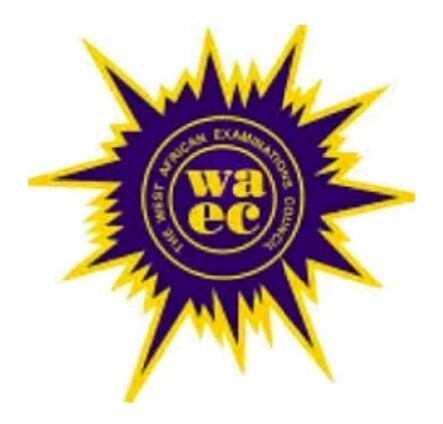Studying the syllabus is essential for students preparing to take the WAEC Civic Education examination.
About Utrecht University Free Online Human Rights Course
The syllabus provides aims, objectives, and important notes on the topics that need to be covered.
It serves as a roadmap, guiding students to focus on specific areas of study.
Without utilizing the syllabus, exam preparation is akin to going to a farm without agricultural tools, resulting in low productivity.
The Civic Education syllabus aims to evaluate candidates’ understanding of the significance of citizenship in society.
It covers topics such as the structure, functions, and responsibilities of the government, as well as emerging issues in society.
It also focuses on the rights, duties, and obligations of citizens to the government and society, while emphasizing the importance of democratic values and upholding them.
The examination consists of two papers
Paper 1 and Paper 2, which are combined into a single composite paper taken in one sitting.
Paper 1 is a 1-hour multiple-choice test with fifty questions drawn from the entire syllabus, carrying 40 marks.
Paper 2 is a 2-hour essay-type test divided into three sections: A, B, and C. Each section contains three questions, and candidates are required to answer four questions, choosing at least one from each section.
Paper 2 carries 60 marks. The sections cover the following areas of the syllabus:
Section A:
National ethics, discipline, rights, and obligations
Section B:
Emerging issues in society
Section C:
Governmental system and processes
The syllabus is structured to cover various topics in Civic Education.
Here is an overview of the sections and their respective themes:
Section A
National Ethics, Discipline, Rights, and Obligations This section focuses on values, citizenship and nationalism, human rights, law and order, and the relationship between democracy, rule of law, and national development.
It also addresses the issue of political apathy and emphasizes the importance of civil society and population participation.
Public service in a democratic society is also discussed in this section.
To aid students in their studies, several recommended textbooks are available, including “Politics and Administration in Nigeria” by Adebayo A., “Elements of Politics” by Adamolekun L., and “Citizenship Education” by Banji K.
The WAEC Civic Education syllabus provides a comprehensive framework for students to prepare for the examination effectively.
By following the syllabus, students can focus on the required topics, enhance their understanding of civic education, and be better equipped for the exam.
References
- ADEBAYO, A. “Politics and Administration in Nigeria.” Ibadan: Spectrum Books Ltd, 1986.
- ANIFOWOSE, R. & F. ENEMUO (eds) “Principles and Practice of Public Administration in Nigeria.” Ibadan: Spectrum Books Ltd, 2000.
- ADAMOLEKUN, L. “Elements of Politics.” Lagos: Sam Iroanusi Publications, 1999.
- APPADORAI, A. “The Substance of Politics, Eleventh Edition.” Madras: Oxford University Press, 1975.
- BANJI, K. “Citizenship Education.” Lagos: Dedun Educational Books, 1976.
- FGN “1999 Constitution of the Federal Republic of Nigeria as Amended.” Abuja: Federal Government Press, 2011.
- LEAP AFRICA “Rage for Change, a Guide for Young Nigerians who Desire to Make a Difference.” Lagos: Leap Africa, 2008.
- MENEKE, O.A. and NWEBO, I. “Milestone Comprehensive Civic Education for Senior Secondary Schools, Books 1 & 2.” Owerri: Milestone Publishers Limited, 2012.
- NWAUBANI, O.O. “Citizenship Education and Nigerian Culture.” Lagos: T-Excel Publishers, 2000.
- OGUNBAMERUN, O.A. “Reading on Campus Secret Acts.” Ile-Ife: O.A.U Press Ltd, 1997.
- OKUNLOYE, R.W., et al. “Civic Education for Senior Secondary, Books 1, 2 & 3, UBE Edition.” Lagos: Learn Africa PLC, 2011.
- OLURODE, L. & O. SOYOMBO (eds) “Readings in Campus Violence.” Lagos: John West Publications Ltd, 2004.
- ONI, E.O., et al. “Straight-Gate Civic Education for Senior Secondary Schools, Books 1 & 2.” Ibadan: Straight-Gate Publishers Ltd, 2012.
- OYEDIRAN, O., et al. “Government For Senior Secondary Schools.” Lagos: Longman Nig Ltd, 1990.
- OYEDIRAN, O. “Introduction to Political Science.” Ibadan: Oyediran Consults International, 1998.
- TANYA, R.H. “HIV/AIDS: Hope in the Midst of Despair.” Lagos: Megarona (West Africa) Ltd, 2005.
- UKEGBU, M.N., et al. “Basic Civic Education for Senior Secondary Schools, SS 2.” Owerri: Maybiks Nigeria Publisher.
- UNO “Human Rights: the International Bill of Human Rights.” New York: United Nations Organization, 1993.
FAQs
Is the Human Rights course offered by Utrecht University completely free?
Yes, Utrecht University offers a free online Human Rights course. While access to course materials and participation in the course are free, there may be an optional fee if you wish to receive a verified certificate of completion.
What topics are covered in the Utrecht University Human Rights course?
The course typically covers key aspects of international human rights law, including fundamental rights, the role of international organizations, mechanisms for enforcing human rights, and specific case studies. It may also explore contemporary human rights challenges like freedom of expression, the right to privacy, and social justice issues.
How long does it take to complete the Human Rights course, and can I study at my own pace?
The course is usually self-paced, meaning you can study at your convenience. Depending on your schedule, it may take anywhere from a few weeks to a couple of months to complete. Typically, the course is designed to take around 4-6 weeks if you dedicate a few hours per week.






